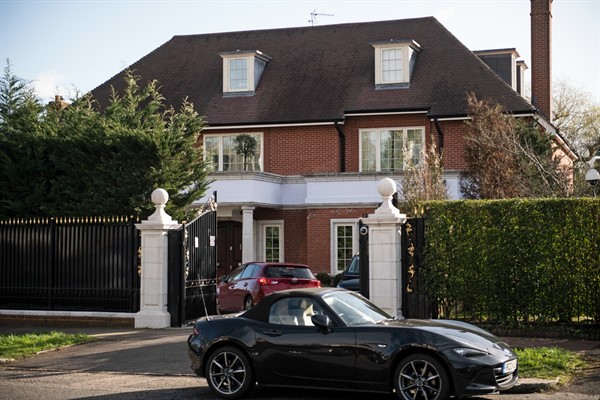The United Kingdom has long been infamous as a money-laundering haven, with hundreds of billions of dollars in dirty money passing through its financial system just in recent years. In 2017, the British government decided to deal with all this dirty money by enacting the Unexplained Wealth Orders, a series of regulations allowing authorities to identify and seize assets related to potential corruption and money-laundering cases. But in their three years of existence, the government has pursued a grand total of just one case under the orders, against the wife of a prominent former banker from Azerbaijan, who had fallen afoul of the regime in Baku. It identified less than $50 million in suspect payments—a small fraction of the total suspicious transactions processed by British financial institutions.
Yet the promise of the Unexplained Wealth Orders may now be coming to fruition. Last month, British investigators from the National Crime Agency began legal proceedings to seize assets belonging to two relatives of Kazakhstan’s former dictator, Nursultan Nazarbayev: His daughter, Dariga Nazarbayeva, and his grandson, Nurali Aliyev. British authorities claimed the two acquired some of London’s toniest properties using questionable financing: a huge Chelsea apartment, a mansion in Highgate overlooking one of the most exclusive golf clubs in all of Europe, and another mansion nearby along one of the most expensive stretches of real estate in Britain, on what is known as the city’s “Billionaires’ Row.” British investigators claim that the houses were financed with proceeds from crimes committed by Aliyev’s father, Rakhat Aliyev, a former deputy head of Kazakhstan’s state security services.
There is any number of similar properties scattered across London. Corrupt figures from around the world—including post-Soviet states, the Persian Gulf and sub-Saharan Africa—use high-end real estate as a way to give their ill-gotten gains a veneer of legitimacy, and to keep their pilfered loot safe from the populations they’re pillaging. Tens of thousands of properties in London alone are controlled by offshore companies. For years, the oligarchs and kleptocrats behind those extravagant property purchases faced no consequences for hiding their dirty money.

